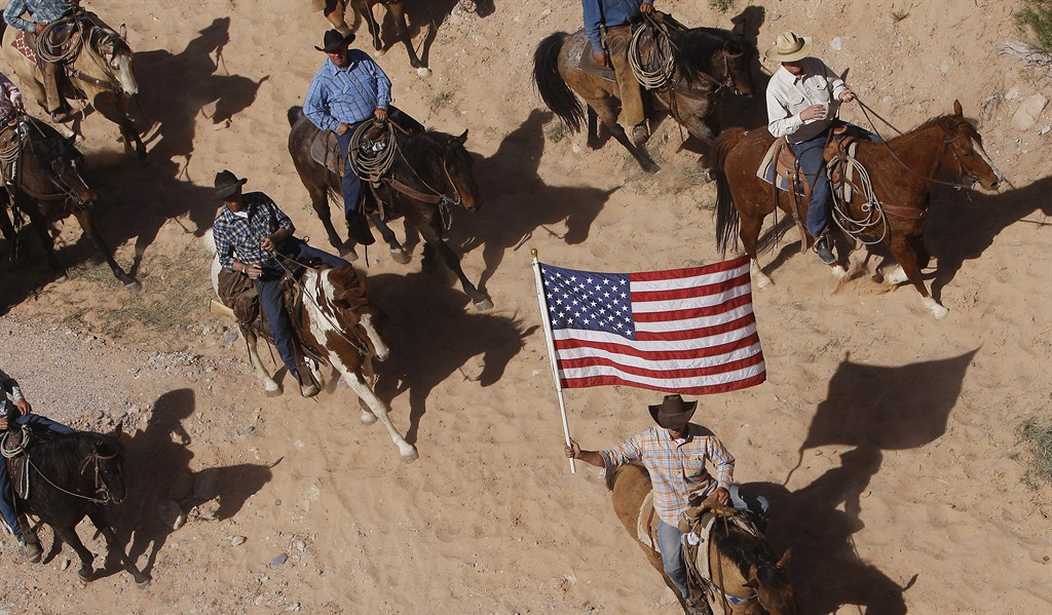The First Amendment won one this week before the Supreme Court of the United States -- by one vote. The close vote in the case brought to mind the old story about the corporate board of directors that approved a resolution wishing its CEO a speedy and complete recovery from his heart attack -- by a vote of 9 to 8.
This should have been a simple case and the outcome obvious from the start. But before the justices could do the right thing in a free country, they had to go through an intense and protracted debate. Only then did they uphold the First (and most basic) Amendment, the one that both protects the free exercise of religion and prohibits the government from establishing a religion of its own.
But it took the closest of votes for the court to reach that self-evident conclusion and agree that, yes, people should be allowed to pray as they wished before meetings of a town council in Greece, N.Y. That's the perilous legal status of free speech, and freedom of religion, in 2014 America.
The only surprise here was that a court which begins its every session with a prayer, "God save the United States and this honorable court," should have had any trouble reaching such a decision.
But the four dissenters in this case objected mightily to the court's conclusion. To quote the dissenting opinion of Her Honor Elena Kagan, letting folks pray as they wish -- rather than utter some safe, government-approved, generically nonsectarian prayer that wouldn't offend anybody -- would violate the Constitution's ban on government's establishing a religion.
Yes, that's the same Constitution which ends by noting that it was written and approved "by the Unanimous Consent of the States present the Seventeenth Day of September in the Year of our Lord one thousand seven hundred and Eighty seven...."
Recommended
Delicious. For connoisseurs of irony, the dissenting opinions in this case are a veritable banquet.
Anthony M. Kennedy, who has succeeded Sandra Day O'Connor as the court's swing vote, gave short shrift to "reasoning" like Justice Kagan's, noting that "government may not seek to define permissible categories of religious speech. Once it invites prayer into the public sphere, government must permit a prayer giver to address his or her own God or gods as conscience dictates, unfettered by what an administrator or judge considers to be nonsectarian." Amen.
Mr. Justice Kennedy seems to be under the impression that he is living in a free country, and that freedom of speech does not stop where freedom of religion begins. In short, government has no business putting words in a citizen's mouth, whether he is delivering a political opinion or a prayer. In either case, let freedom ring. That's the genius of the First Amendment, which is all of a piece. It makes no exception to freedom of speech if it's religious speech, which can no more be censored in this country than any other kind, thank God.
And the result has been a great success. Thanks to the First Amendment, this country has nurtured one of the most religiously fervent yet religiously tolerant societies in the world. We've been able to achieve that feat because courts and legislatures have kept their hands off religion -- rather than decree just how much of it to allow.
A Frenchman named de Tocqueville, the eloquent observer and analyst of "Democracy in America," which was the title of his still highly relevant study of that subject back in the 1830s, noted that both "the spirit of liberty" and the "spirit of religion" have not only co-existed in this New World but thrived in conjunction with each other. Because each has kept a respectful distance from the other.
But in Europe, where church and state were joined, they became bitter antagonists -- and their mutual enmity a threat to the public peace. Which is why each should leave the other very much alone. It's also why the Supreme Court of the United States shouldn't be vetting the prayers offered by citizens before a town council meeting in upstate New York, and deciding which are constitutionally kosher and which aren't. Like some kind of secular sanhedrin. Talk about an unholy spectacle.
The innocent citizens offering those prayers aren't public officials setting down the law or speaking for the State. Indeed, they may be speaking to it as well as to their own God, and they have every right, even duty, to speak as their own conscience dictates.
If their prayer, their free exercise of religion, offends others, there's another part of the First Amendment that would seem to cover that eventuality, even probability, in a free country. It's the part of the amendment that guarantees freedom of speech and of the press. Those who object to the contents of a prayer offered at a public meeting, or even to a prayer's being offered at all, can express their objections in public, too. By making a statement of their own, or writing a letter to the editor. Rather than trying to gag the rest of us. It's the American way.
Let everybody have their say -- and their own prayers. This is called tolerance, and it's the mark of a society that is both free and stable. No society ever prospered by suppressing either different opinions or different prayers. However tempted the Supreme Court of the United States may be to decide which prayers are acceptable and which aren't, it is a temptation no court -- or any other political body -- should yield to in a free society. Which is why this week's decision upholding the First Amendment, even if only by one vote, is a decision to cheer.
























Join the conversation as a VIP Member